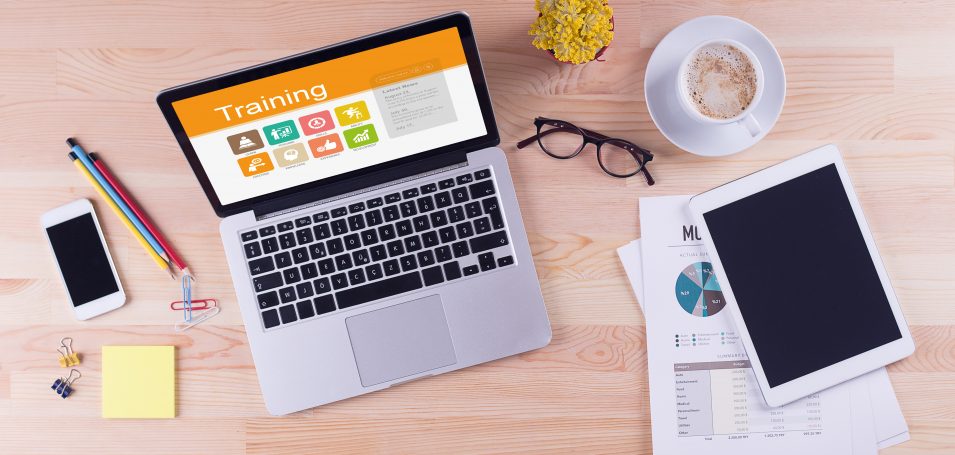Customer training can be an engine for growth at any company. Need proof?
According to our State of Customer Education Report, organizations are leveraging customer education to enhance retention and drive revenue growth.
These stats are especially important in an environment in which overall customer experience is declining. To engage and retain customers, B2B companies need structured B2B customer training solutions, not just support documentation or similar resolutions.
Thought Industries is a learning management system (LMS) provider specializing in external learning solutions. We understand the challenges businesses face when developing customer training, so we deliver dynamic solutions and offer advice on best practices for implementation.
Key Challenges in B2B Customer Training
B2B companies need a structured approach to customer training. Why? Because it’s a challenging program to develop and deploy. If it were easy, every B2B company would already have a fleshed-out customer training program in place.
Some of the biggest obstacles facing effective B2B customer training are:
- Scalability issues: Traditional customer training methods can be hard to scale for large and diverse customer bases, especially with rapid growth. It’s difficult to stay attuned to customers’ needs when they vary widely.
- Engagement challenges: Customers often disengage with static or overly technical training materials; education modules need to be updated regularly.
- Customization needs: Beyond baseline updates, the system needs to adjust to different customers’ learning paths based on their roles, experience levels, or use cases. Ultimately, personalization unlocks customer retention and engagement.
- Measuring success: Companies often struggle to track the effectiveness of their training programs and demonstrate their return on investment (ROI).
Overcoming these challenges requires a purpose-built external learning platform.
Core Customer Training Solutions for B2B
Your business can implement many different customer education solutions, each with its own specific focus. The best way to choose an LMS provider is to consider your specific use case and determine which system most directly matches your business and client needs (current and future).
Here are some of the top points of focus for customer training solutions.
1. Onboarding and Adoption Programs
Any top customer training system starts with a solid foundation in onboarding. A structured approach helps your customers learn about goods and services faster, reduces the volume and severity of support tickets later on, and improves retention.
The best onboarding platforms are informed by customer training best practices, such as prioritizing multi-format content. Leveraging videos, knowledge bases, and interactive walkthroughs helps customers stay engaged from the very start of their journeys.
These platforms should also use progress tracking and certification to guide customers through learning steps, as well as hybrid communication.
Thought Industries powers in-person, virtual, and on-demand learning to optimize onboarding and create brand loyalty in your customers from day one.
2. Continuous Learning and Upskilling
Effective customer training doesn’t end with onboarding. B2B customers need ongoing education to be informed about product updates, new features, industry changes, and more. Even in the absence of these, it’s important to maintain open communication so your customers feel supported throughout their lifetime.
Thought Industries leverages artificial intelligence (AI) for analytics that tailor learning paths based on user behavior. This allows you to train to retain, keeping your customers engaged with microlearning modules, periodic refreshers, and content similar or related to modules they’ve reacted positively to in the past.
3. Role-Based Learning Paths
The best customer training solutions feature segmented training with unique customer interactions for different types of users. At the most basic level, this means specialized paths for administrators, technical staff, and other camps users fall into.
The Thought Industries customer training LMS features Panorama Multi-Tenancy, which allows you to create separate branded portals while maintaining centralized visibility and management across all content. Ultimately, it allows for different learning tracks for different functions, such as salespeople or IT administrators.
People learn differently because of their learning styles and the hats they must wear in their respective roles. B2B customer training must cater to this.
4. Certification and Compliance Training
Offering certifications to learners can boost product adoption and increase customer credibility. Certificates and documentation of compliance or other sensibilities are valuable because they communicate (and confer) transferable skills that your users can take with them beyond the bounds of your LMS and customer experience suite.
In other words, it makes your company relevant to them on a much deeper and broader level.
Thought Industries features extensible integrations that simplify managing certification programs within the LMS. This allows companies to turn what could potentially be a point of friction into an engine for customer empowerment.
For example, software companies can use certification training to turn their customers into power users who become brand advocates.
5. Partner and Reseller Training
B2B firms that work extensively through partner and reseller programs should mirror these efforts in their customer training suite. Reseller-focused education modules are critical for consistent messaging, better customer support, and increased sales.
The Thought Industries headless LMS allows companies to embed training directly into partner portals for seamless access and engagement. Rather than making users navigate multiple systems, learning happens all in one place, ensuring customers get the messaging they need and are supported throughout their journeys.
Using this model, a hardware or software as a service (SaaS) company could train its reseller networks on product features and best practices without adding friction.
Best Practices for B2B Customer Training
Whether building customer training from the ground up, upgrading an existing system, or implementing a purpose-built external solution, taking a careful, measured approach is critical. Our guide to customer training breaks down all the steps B2B organizations should follow when implementing customer education.
Here are some additional best practices to keep in mind along the way.
1. Make Learning Engaging and Interactive
Learning needs to be dynamic to keep your customers engaged. This means no more passive learning in the form of simple text-heavy PDFs or excessively long manuals.
Instead, your B2B customer training should use a mix of videos, interactive quizzes, and real-world situations. Gamifying learning makes a significant difference—it introduces an element of competitiveness and helps learners motivate themselves as progress unlocks rewards.
Personalized learning paths based on AI-driven insights will help you determine which modes and formats your learners are responding to and develop similar resources for them.
2. Offer Flexible Learning Formats
Similarly, B2B customers thrive on self-paced, instructor-led learning. In particular, leaning into microlearning opportunities and bite-sized insights can go a long way toward encouraging future engagement.
Learners do best when they’re empowered to go at their own pace and access as much (or as little) content as they want at any given time. Hybrid learning capabilities allow for in-person and on-demand training.
With Thought Industries, you can implement blended learning modules to accommodate different learner preferences. The same content should be offered to all learners in long-form, short-form, synchronous, and asynchronous formats.
3. Ensure Training Is Easily Accessible
Another way to ensure customers move at their own pace is to meet them where they are. Mobile-friendly, on-demand learning is essential for busy professionals.
At a base level, customer training content should be available to users on the go and offline. Connections to other apps they’re using to interact with your company, or the ability to access content from within your app or platform, are boons. If learners can get everything they need from a single sign-on, they will likely come back for more.
Thought Industries supports a seamless experience across customer relationship management (CRM) and support platforms. It speaks to these and other systems, making for easier tracking and outreach with tagging and search functions.
4. Measure Success and Optimize Continuously
Last but not least, measuring the impact of customer training is essential. Tracking key customer success metrics like completion rates, knowledge retention, engagement, and customer satisfaction will help you understand whether and how your program is functioning.
Most importantly, these metrics should identify areas of improvement to continuously ensure your learners are engaged and informed.
For example, if training data indicates that a particular segment or module is not being completed, then this is an area to focus on in upcoming changes. Look to refine content and make it simpler or more easily accessible, consolidate it with other resources that users are engaging with successfully, or do a bit of both.
Thought Industries features powerful AI-driven analytics to help businesses optimize content based on performance data. Connecting to business intelligence (BI) tools for deeper and more granular insights will keep your system up to date.
Elevate Your B2B Customer Training
Customer training is essential for B2B companies looking to improve product adoption, customer satisfaction, and long-term retention. However, developing, deploying, and maintaining an effective program can be challenging as scalability, engagement, customization, and assessment issues accumulate over time.
To combat these issues, B2B companies should seek out solutions for onboarding, continuous learning, role-based training, certification, and partner learning. Following best practices like maximizing engagement, making learning flexible and accessible, and measuring to continuously optimize training is critical to success.
Thought Industries provides the tools B2B companies need to build a scalable, engaging customer training program. We’ll help you create a structured approach with engaging, flexible, and data-driven training to improve learning outcomes.
Ready to elevate your customer training?
See how Thought Industries can help.



